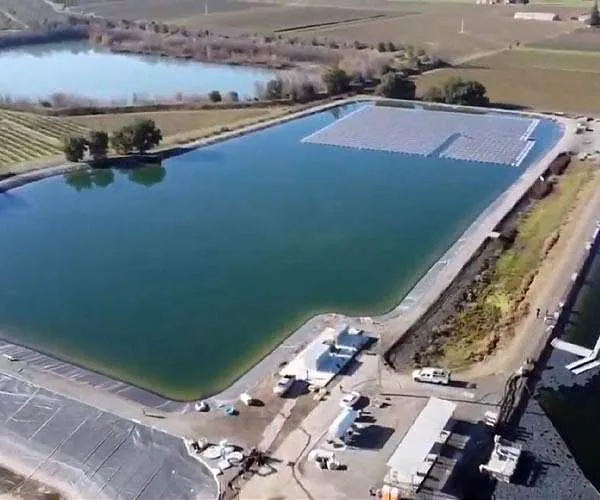DNV publishes world's very first recommended practice for floating solar power plants
- DNV, the independent energy specialist and guarantee supplier has actually released the world's initial recommended practice (RP) for floating solar energy projects adhering to a collaborative joint industry project (JIP) including 24 market individuals.

The Recommended Practice (DNVGL-RP-0584) will provide commonly recognized advice based on a checklist of technological needs for accelerating secure, sustainable and also sound style, development, operation as well as decommissioning of floating solar photovoltaic or pv (FPV) projects.
Floating solar power is an encouraging renewable resource modern technology in which solar panels are mounted on floating frameworks externally of ideal bodies of water. The technology provides fantastic potential for eco-friendly energy production, particularly in areas where there is a shortage of offered land for large solar plants.
The bigger fostering of floating solar energy could scale up especially in countries that have high population density and limited extra land. such as in lots of Asian countries.
Adhering to the very first projects in 2006, set up ability for floating solar energy was simply 10 MW by 2015 yet has actually increased substantially ever since, reaching 2GW in the direction of the end of 2020. It is estimated that the complete international potential ability for deploying floating solar power on manmade, inland waters alone could be as high as 4 TW with an anticipated pipe of greater than 10GW by 2025.
While FPV is an encouraging expanding sector, there are a number of complexities related to the setup of floating solar plants. The RP offers understanding right into the technical complexity of making, structure and operating on as well as in water, especially in regards to electrical safety, securing as well as anchoring issues, procedure and also upkeep, and also designing FPV plants that can stand up to site-specific environmental problems.
Ditlev Engel, Chief Executive Officer of Energy Systems at DNV claimed: "Floating solar is an untapped, fast-growing modern technology with big capacity and also I hope this recommended practice will drive the adoption and scaling of this innovation to speed up the speed of the energy shift. With collaboration from leading companies all over the world, it offers critical confidence to the likes of capitalists as well as federal governments along with leaders from throughout the energy sectors that we are able to change quicker to a tidy energy future and realize the goals based on the Paris agreement.
" With input from both our renewables and also floating frameworks specialists, this project flawlessly demonstrates the toughness and also deepness of our brand-new Energy Systems organization area."
The JIP, which began last summer, assessed all aspects of establishing floating solar projects on inland as well as near-shore waters. It focuses on five key topics: website problems analysis, energy yield forecast, mooring and securing systems, floating structures, allowing and ecological impact.
DNV project manager Michele Tagliapietra claimed: "We produced this recommended practice to ensure balanced and quality techniques in developing floating solar energy projects to increase self-confidence from investors, regulators and also various other stakeholders. The advice of this recommended practice aims to enhance quality, minimize risks and inevitably raise count on, avoiding failures and also crashes which might place a break on the possible growth of this encouraging market.
" It has actually been an extremely collective initiative, for which we thank all the individuals included. It is encouraging to see how everybody is making every effort to enhance the high quality as well as dependability of this exciting industry."
"Being pioneers of this floating solar market, we are delighted to see this JIP team job forming in the form of this Recommended Practice. Our company believe this is an excellent step in the direction of unlocking the possibility of floating solar", claimed Olivier Philippart, Director at Ciel and Terre International, one of the 24 participants in the project.
The RP focuses on methodology to maintain the RP as innovation neutral as possible as well as provide functional needs, recommendations and guidelines. It has a holistic system-level technique, consisting of single essential elements in addition to treatments and also layout considerations as well as focus on FPV projects in inland as well as near-shore water bodies.
Also read

